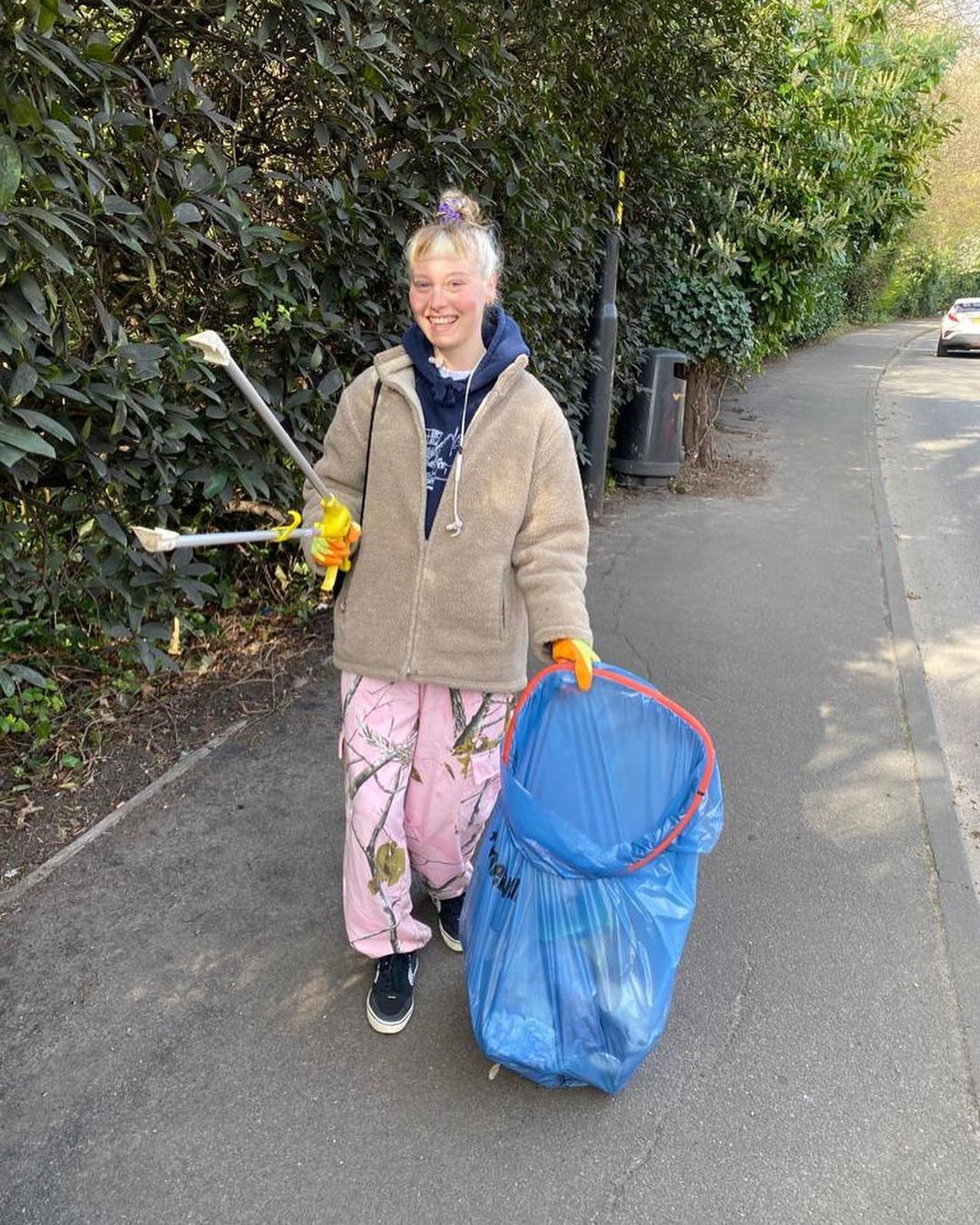
Saturday 22 April is Earth Day – a global initiative to diversify, educate and activate the environmental movement worldwide. The first Earth Day took place in 1970, but it has never seemed more pressing. There’s widespread understanding of the climate emergency, and a willingness to drive change, particularly led by young people. In fact, Youth Music’s annual stakeholder survey found that 57% of our funded partners already creatively embed environmental themes in their work with young people.
But increased awareness has also led to eco-anxiety and apathy. Will my actions have any impact? How can I influence those with the power to make change? Isn’t it too late?
Don’t underestimate your power. When your voice and your actions are united with thousands or millions of others around the world, we create a movement that is inclusive, impactful, and impossible to ignore - EARTHDAY.ORG.
As grassroots music organisations, we’re not major contributors to climate crisis. We’re small, we’re local, we’re helping people, we’re busy. We’re facing a cost-of-living crisis after a pandemic. We’re all doing what we can to tackle environmental issues. But what can we do?
This Earth Day is opportunity to reflect on why these issues are so important, be inspired by what organisations and musicians (included Youth Music funded partners) are doing already and take our own action.
Led by young musicians
Young people are increasingly at the forefront of climate crisis activism. Around 70% of people aged 16-25 are extremely worried or very worried about the climate, according to a 2021 study published in The Lancet. And the percentage was highest in countries that are expected to face the worst consequences of climate change.
In 2022, a Climate Cares study found that while young people in the UK reported disruption and concern for their future due to both the issues of climate change and COVID-19, climate change was associated with greater distress overall, and especially in young people with low levels of generalised anxiety.
A University of Glasgow-led study in 2022 found that 82% of music fans were concerned about climate change compared to 72% of non-music fans. Music fans were significantly more likely to view it as a top priority with 54% agreeing that “tackling climate change should be a top priority now, above other issues” as compared to 47% of non-fans.
Young musicians are taking an intersectional approach to activism, highlighting issues of climate justice and mental health. In January this year, 21-year-old musician Billie Eilish used her platform in Vogue magazine to #ShareTheMic with eight young climate activists and organisers.
Imagining a better future
One of the young people featured in the Billie Eilish video is Tori Tsui, a Bristol-based climate activist, speaker and consultant from Hong Kong. She uses the term “radical imagination” to describe the sense of optimism she holds onto – the idea that we can create a better world.
Earlier this year, the Youth Music staff team had a day of carbon literacy training led by consultant Nick Perks. Nick started the session by harnessing this idea of radical imagination, asking us to visualise a future in which global warming had been limited by collective action, and society was all the better for it. This appealed to our organisational ethos, as Youth Music so often drives change by imagining the music industries of the future which are more inclusive, more diverse, more equitable, more accessible. It was valuable to explore how they could be more sustainable too.
“We need to help young people find ways to respond to what's going on the world because it's their future… imagining the world differently through art.” Michael Davidson, Hertfordshire Music Service
Transforming the music industries
Music industry organisations and figures are beginning to take collective action. The global music industry does have a significant environmental impact, particularly in areas like international touring and manufacturing. And it’s also powerful in terms of the influence high profile artists can have, especially on their young fans.
Music Declares Emergency is a group of 5,000+ artists, music industry professionals and organisations that stand together to declare a climate and ecological emergency and call for an immediate governmental response to protect all life on Earth. Their #NoMusicOnADeadPlanet campaign has targeted music fans to help take environmental messages mainstream.
Musician and producer Brian Eno has been encouraging other high-profile artists to credit ‘Earth’ as a collaborator, raising money for Earth Percent. And companies such as Evolution Music are developing alternative materials to reduce the environmental impact of vinyl, CDs and other physical merchandise.
Making change at the grassroots
Youth Music’s annual stakeholder survey found that 42% percent of respondents have an environmental action plan and 44% are planning to develop one. 56% of respondents take active steps without them being formalised into a specific plan.
Jack Drum Arts - a Youth Music funded partner based in Crook, County Durham - last year supported their youth board to produce a climate-focused music festival called B.O.P. Fest. Over 2,000 people attended (fittingly, on an unseasonably hot day) and the team have since won multiple awards for their achievements.
“The environment is in such a critical point,” says B.O.P. Fest board member Dylan. “Us as youth, we’re going to have to be the ones to deal with that in the future. So why wait when we can start acting now to try and fix the future and the environment for ourselves later on? What better than to do that in a way that we know how we can express ourselves like music? It’s what we do.”
“It’s not about preaching. It’s about demonstrating what we can do locally, like the small actions that we can take, the difference that they will make collectively,” says Jack Drum Arts Managing Director Helen Ward. “I think we have a responsibility to do it, particularly for young people. We’ve had loads of problems since the pandemic in Crook. We’ve been on national news about antisocial behaviour. I think it’s really good to demonstrate and show local people that if you give young people a chance, they can do something really positive… Even though you’re tackling a very serious and depressing subject, you can do it in a really nice creative way. It can be empowering for those people taking part.”
Empress Linoleum, a Birmingham-based musician supported by the Youth Music NextGen Fund, is a passionate environmental campaigner, taking action on local and global issues as well as hosting a YouTube series called Trash Talk.

“I find that people are more likely to listen through music than just through someone talking to them,” she says. “If it's cleverly written and it rhymes and it fits to this beat, then maybe that's gonna have more of an impact than just the words. It’s not like ‘this is a song about recycling’ but I address it in my songs, kind of in a fun way. In one of my music videos I was like just brushing my teeth with a bamboo toothbrush, that kind of thing. It's subtle but I feel like hopefully it will kind of make people go oh!
“My generation is a lot more sort of switched on. A lot of people, they know that there's an issue but they don't really think that anything they do would make a difference. But it's like if everyone thought ‘I can make a difference’, then there would be a massive shift.”

Youth Music funded partner B Sharp, based in Lyme Regis, have partnered with Dorset Community Foundation and #iwill on a new project called Listen Up! The project aims to transform young people’s anxiety about the climate emergency into an active campaign through music. Participants will work with climate communicators/writers, musicians and filmmakers, writing songs and creating music videos to create a public campaign targeted at adults.
“This project has come out of the fact that climate issues come up repeatedly when we're working with young people,” says B Sharp Chief Executive/Artistic Director Ruth Cohen. “Just this kind of overwhelming and constant and underlying thread of anxiety …and that feeling of hopelessness and helplessness.
“[It’s about] using music making and songwriting to do something active, which is supposed to be one of the solutions to this feeling of malaise … And also, wanting them to feel valued as musicians. Feeling like their songs are useful and that they have got something to say and music is a really good way of saying that.
“I just hope that it makes young people feel a bit more like they are contributing and more positive and less anxious… I'm hoping the music leaders also gain skills in a different way of approaching work and a different way of talking about writing and lyricism and campaigning.”
What can we do next?
Wherever our starting points are, Earth Day gives us the opportunity to take the next step in addressing the climate emergency through our work. Making practical changes and facing challenges creatively and collectively can help to ease climate anxiety and make a real difference, however small.
For organisations not currently exploring environmental themes through creative work with young people, it could be an opportunity to discuss those ideas with participants.
Others may want to look at embedding ways to address the climate crisis through organisational strategy. Arts Council England’s Let’s Create strategy includes Environmental Responsibility as one of their four investment pillars. As a funder, this influences many more organisations to consider the environment as a key part of their work.
Climate action is a collective responsibility, but it needs enthusiastic leadership to drive action. At Youth Music, we’ve appointed a staff Environmental Champion – Programme Officer Phoebe Cross – to challenge our thinking and support us to meet our targets, backed by an organisational policy and action plan.
Phoebe says, “It feels like we’ve just started our environmental journey, but as an organisation we want to influence change. Anything us and our partners can do will make the future brighter for our young people – it’s not too late to be part of this movement. It’s nice to feel positive about it – we can all bring about change!”
